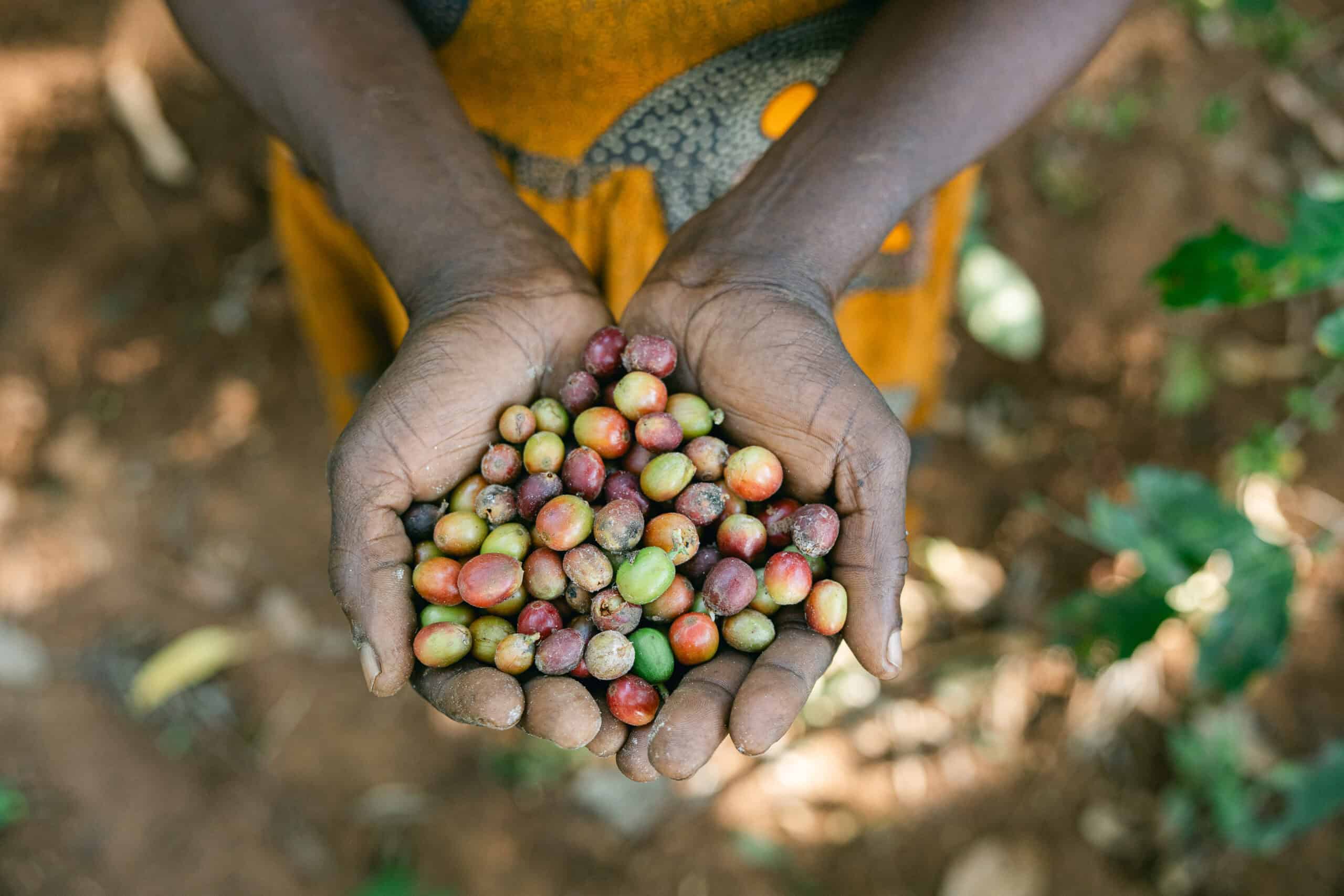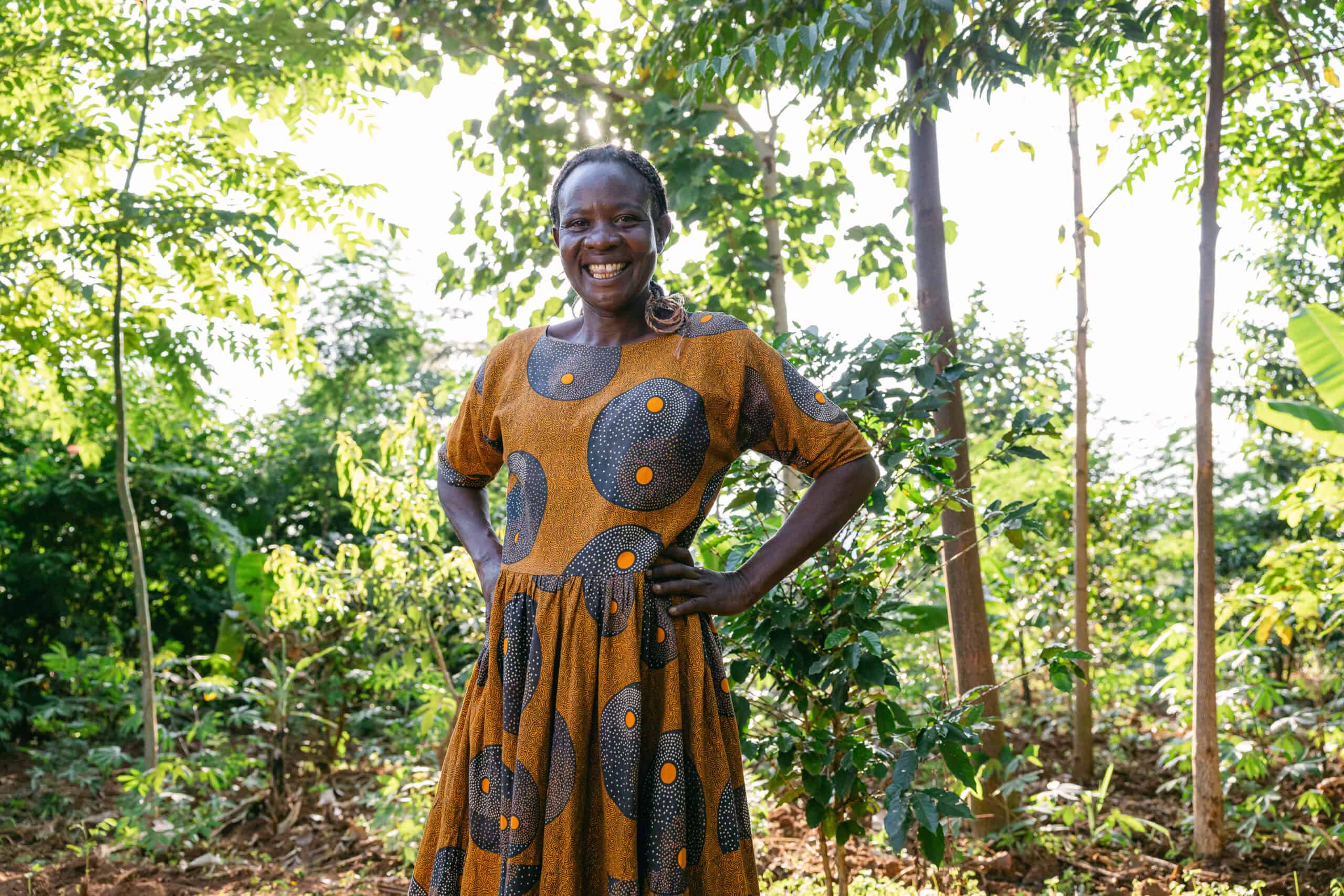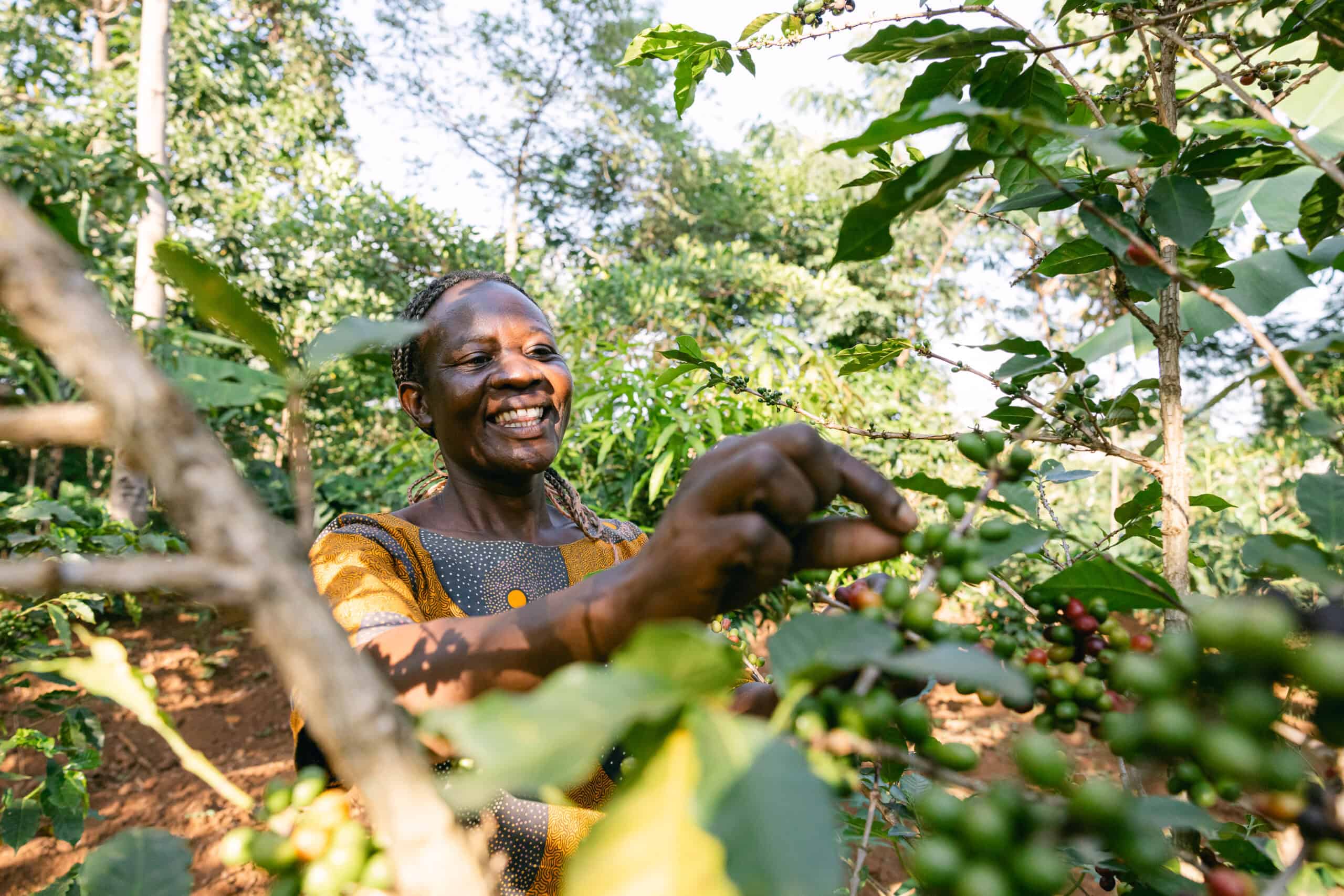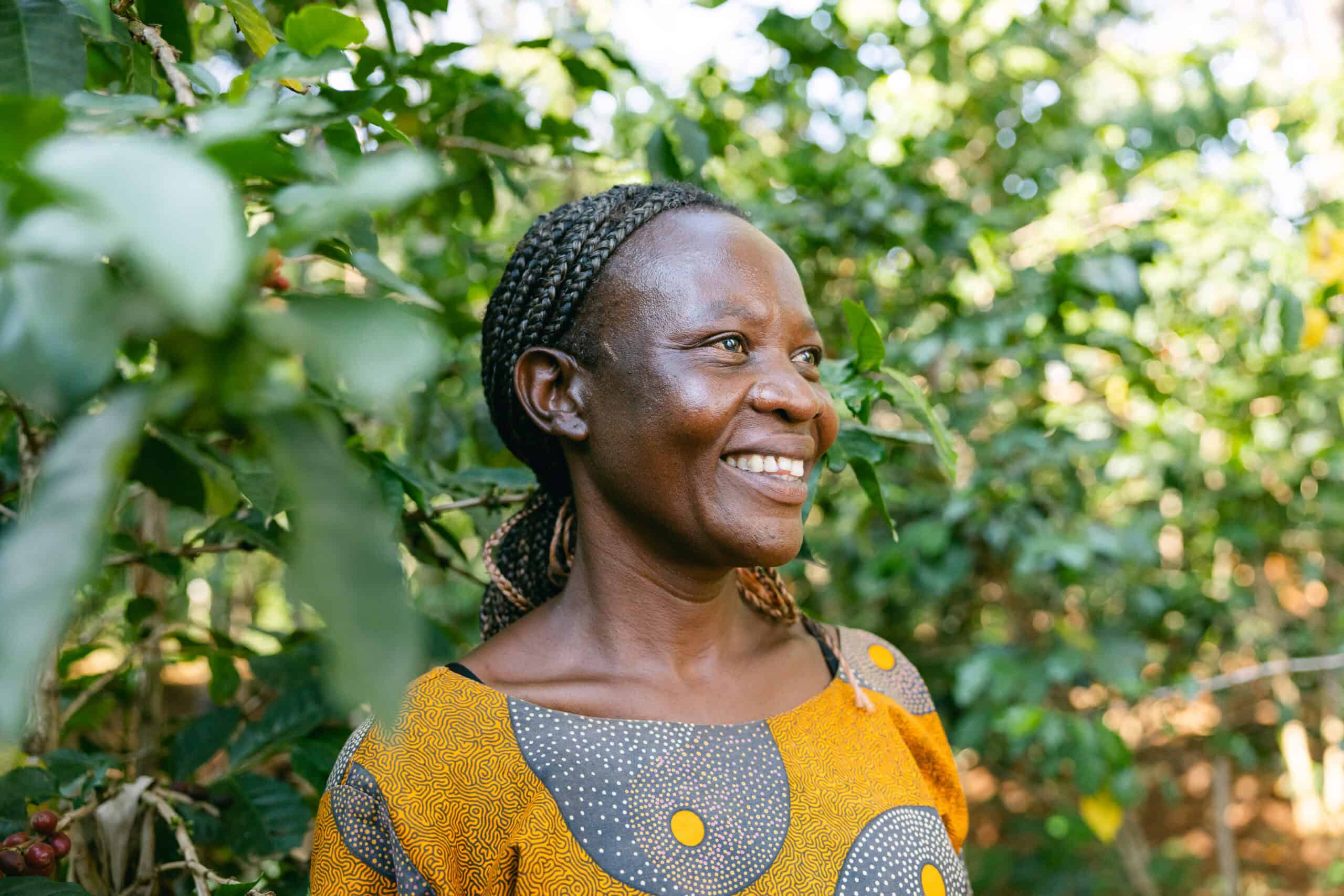Like many Ugandan farmers, Kakai Harriet is growing coffee on her farm.
Coffee is a commonly grown commodity crop in Harriet’s home region of Mount Elgon and across the country. The globally beloved caffeine-packed berries support the Ugandan economy as a leading export. But after decades of growing coffee on the steep slopes of Uganda’s mountainous farmlands, soils are disappearing and mudslides are becoming common occurrences.

In addition to the stress on their land, farmers who use their entire property to grow coffee have only one stream of revenue and are susceptible to changes in the market.
This is where the Forest Garden Approach comes in.
Trees for the Future (TREES) staff train farmers in a regenerative agroforestry technique called the Forest Garden Approach. Farmers learn to protect their land with trees and climate smart practices. Then they diversify what they grow to ensure they have plenty to eat and sell all year long.

Harriet joined the training program in 2021.
At the time, she was growing three different food crops on her land. Over the last three years, she has been working with TREES staff to establish a thriving Forest Garden that can support the nutritional and financial needs of her eight-person family.
Today, she is growing thousands of trees and more than a dozen crops, including various vegetables, rice, beans, potatoes, cassava, banana, and yes, coffee.

Harriet has coffee plants throughout her Forest Garden. As her soil health and stability improved, she was able to achieve more sustainable coffee production on her land. That’s the beauty of the Forest Garden.
Her focus on diversification has enabled Harriet to feed her family and increase her income and savings. She recently purchased farm equipment, goats, and chickens through the sale of her vegetables and other products growing in her Forest Garden.
